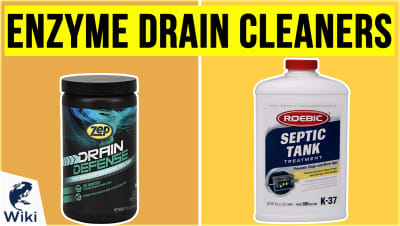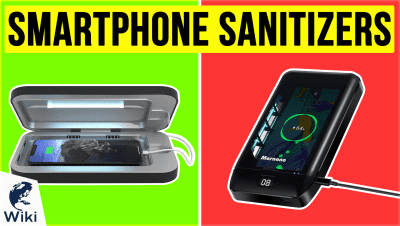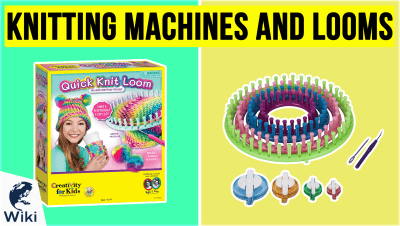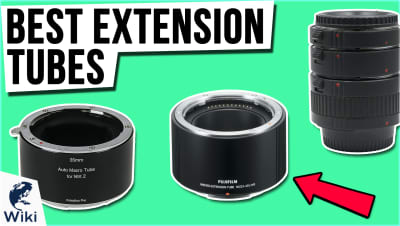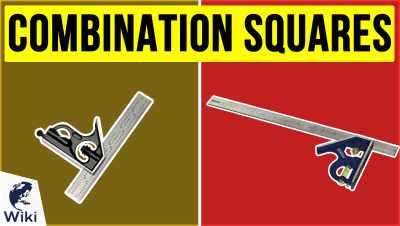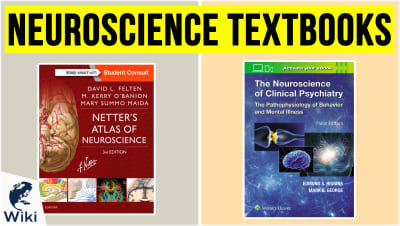6 Resources For Anyone Looking To Go Zero Waste
As climate change continues to impact communities all over the world, many people are looking to change their habits in order to mitigate the damage humans are doing to the planet. One way to help is to avoid waste as much as possible, from single-use plastics like water bottles to excess packaging. The six resources listed here provide people with ways to go waste-free and reduce their impact on the environment. This video was made with Ezvid Wikimaker.
Resources To Help You Cut Back On Waste
| Name | Description |
|---|---|
| Wasteland Rebel | Site that shares simple and effective zero-waste hacks for people looking to reduce their footprint |
| Zero-Waste Chef | Blog that features recipes, listicles, and tips for going zero-waste, especially in the kitchen |
| Quest | Resource management group that works with other companies, helping them deal with their waste streams |
| Gippsland Unwrapped | Blog that shares practical tips on sustainability, enabling visitors to minimize waste and maximize resources |
| Zero Waste Daniel | Clothing designer and advocate for sustainable living, particularly in the fashion industry |
| Cafeteria Culture | Environmental education organization that promotes climate-smart communities, free of plastic and waste, and empowers young people |
The Rise Of Global Temperature
According to data from NASA
| Year | Annual Average Anomaly |
|---|---|
| 2010 | 0.73°C |
| 2011 | 0.61°C |
| 2012 | 0.65°C |
| 2013 | 0.69°C |
| 2014 | 0.75°C |
| 2015 | 0.90°C |
| 2016 | 1.02°C |
| 2017 | 0.93°C |
| 2018 | 0.85°C |
| 2019 | 0.98°C |
6 Reusable Products To Replace Single-Use Versions
- Reusable grocery bags
- Stainless steel straws
- Reusable K-Cups
- Silicone food bags
- Beeswax wraps
- Reusable water bottles
Choosing A Life Without Trash
Tips & Tricks for Vegetarians & Vegans
Switching to a plant-based diet is another great way to reduce your environmental impact. If you're thinking of filling your re-usable lunch containers with some vegetarian or vegan food, here are a few tips:
- Get some vegetarian & vegan cookbooks, so you don't have to modify recipes and have plenty of dishes to choose from.
- Experiment with how you prepare tofu. It has a bad reputation, but it can be a great component of a meal if it's flavored and cooked right.
- Stock up on vegan snacks. Just because you're on a plant-based diet doesn't mean you can't have fun with your food.
- Consider a meatless diet for your dog, although of course you should talk to a vet before making this major change.
- It's not hard to get the protein you need from whole foods, but if you're a body builder or just concerned about protein intake, try mixing a vegan protein powder into a shake or smoothie.
- Remember to create sustainable habits so that you don't lose steam after a week or two.
5 Human Impacts on the Environment
In Depth
In recent years, the combination of climate change, ballooning populations, and growing pollution levels has pushed many to consider what impact they have on our planet. A key area of focus for these eco-conscious individuals and businesses is the amount of trash they generate, and how they might reduce their footprint at home, at work, and on the go. If you are interested in learning more about some creative ways to go green, then here, in no particular order, are several resources for people looking to reach zero waste.
Coming in at #1 is Wasteland Rebel. Launched by a blogger named Shia, this online resource shares simple and effective zero-waste hacks for people looking to reduce their footprint. Powered by 100% renewable energy, the blog is a collection of recipes, DIY guides, and cleaning ideas for individuals trying to follow a more sustainable lifestyle. Its advice covers all areas of the home and beyond, from the kitchen and the bathroom to travel and the workplace.
Other areas of focus for Wasteland Rebel include natural cleaning supplies and vegan-friendly places to visit in Vancouver. For those on the hunt for the perfect gift, Wasteland Rebel publishes lists of eco-friendly ideas for birthdays and holidays. It also collects information on similar blogs, posting links to websites that can help viewers on their zero-waste journeys.
Other areas of focus for Wasteland Rebel include natural cleaning supplies and vegan-friendly places to visit in Vancouver.
In the #2 spot is Zero-Waste Chef. Worried by the growing use of plastic in society, Anne-Marie Bonneau started this website to chronicle her efforts as she worked toward no packaging and no waste in her life, particularly in the kitchen. Accordingly, her blog is filled with numerous eco-friendly meal plans and recipes for foods such as lemon curd, vegetable fritters, and sourdough pretzels.
Zero-Waste Chef publishes listicles as well, detailing ways to spend less, repurpose things like citrus peels, and reduce energy in the kitchen. Elsewhere, its guide on breaking up with plastic lays out simple-yet-practical ways to lead a more sustainable life. Bonneau also runs periodic in-person workshops, with past topics covering fermentation and making sourdough bread.
At #3 is Quest. Launched in 2007, this resource management group works with other companies, helping them deal with their waste streams. A sustainably minded organization, it provides its clients with solutions that promote recycling, protect the environment, and conserve time and money. Since its founding, Quest has partnered with companies such as Buffalo Wild Wings, John Deere, and Kroger.
A sustainably minded organization, it provides its clients with solutions that promote recycling, protect the environment, and conserve time and money.
A comprehensive service, Quest offers its clients customized programs, an experienced account management team, and a path toward a regenerative business model. It stays active across a variety of industries, teaming up with automotive and fleet maintenance operations, manufacturing plants, and property management groups, to name but a few. In recognition of its waste reduction work, Quest has been featured in a number of media outlets, like Forbes and Restaurant Business.
Coming in at #4 is Gippsland Unwrapped. Created by Australian native Tammy Logan, this blog shares practical tips on sustainability, enabling visitors to minimize waste and maximize resources. In particular, it focuses on eco-conscious ways to clean, prepare food, and otherwise exist in a rural area. To this end, it has a vast collection of recipes, reviews, and DIY projects.
Additional topics covered by Gippsland Unwrapped include incorporating sustainability into local communities, low-waste holidays, and the benefits of decluttering. Furthermore, Logan has identified environmentally friendly businesses that she supports, both in her home region of Gippsland and further afield. Other helpful resources range from educational books to an app that locates package-free shopping opportunities around the world.
Additional topics covered by Gippsland Unwrapped include incorporating sustainability into local communities, low-waste holidays, and the benefits of decluttering.
In the #5 spot is Zero Waste Daniel. Founded by Daniel Silverstein and operating out of New York, ZWD designs clothing and promotes sustainable living, particularly in the fashion industry. Silverstein, a graduate of the Fashion Institute of Technology, started the brand with a unique idea in mind: to create a line of genderless clothing and accessories made from pre-consumer waste and other difficult-to-recycle materials.
On ZWD's blog, Silverstein discusses a wide range of issues at the intersection of fashion and sustainability. Beyond its online presence, ZWD has a brick-and-mortar shop located in Brooklyn. In recognition of its popular offerings and forward-looking mission, Zero Waste Daniel has received coverage from several well-known media outlets, including the New York Times, Paper Magazine, and CNN.
Last but not least, at #6 is Cafeteria Culture. This environmental education organization, based in New York, was founded in 2009, as part of a project to eliminate styrofoam trays in the city's schools. Since then, it has expanded its scope, working broadly to promote climate-smart communities, free of plastic and waste. To accomplish these goals, it combines science, civic action, media, and the arts to engage and empower young people.
To accomplish these goals, it combines science, civic action, media, and the arts to engage and empower young people.
A central part of Cafeteria Culture's work involves developing and deploying specific educational programs in schools. Furthermore, it encourages hands-on involvement from students, through initiatives like its Youth Advocates Program, which provides leadership opportunities in climate justice action. Cafeteria Culture has produced its own documentary as well, entitled "Microplastic Madness," which focuses on one class's fight against plastic pollution.




